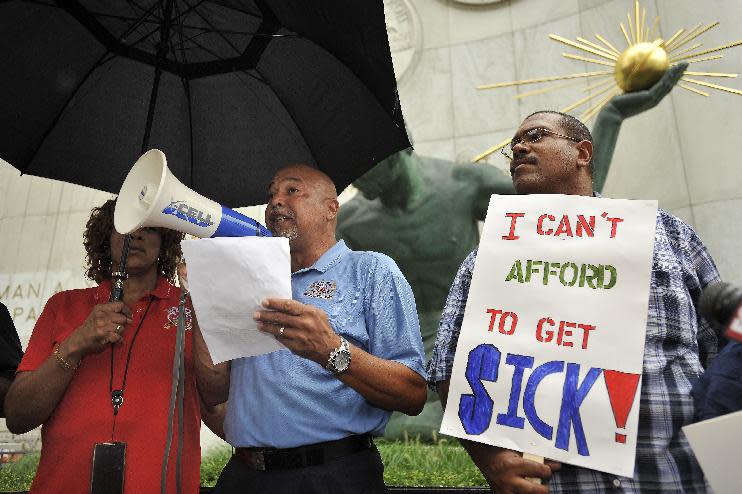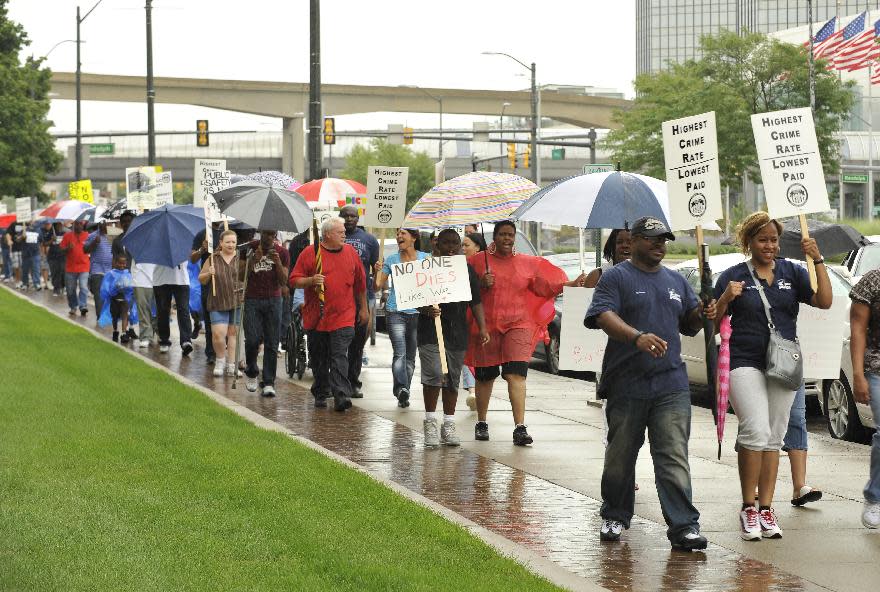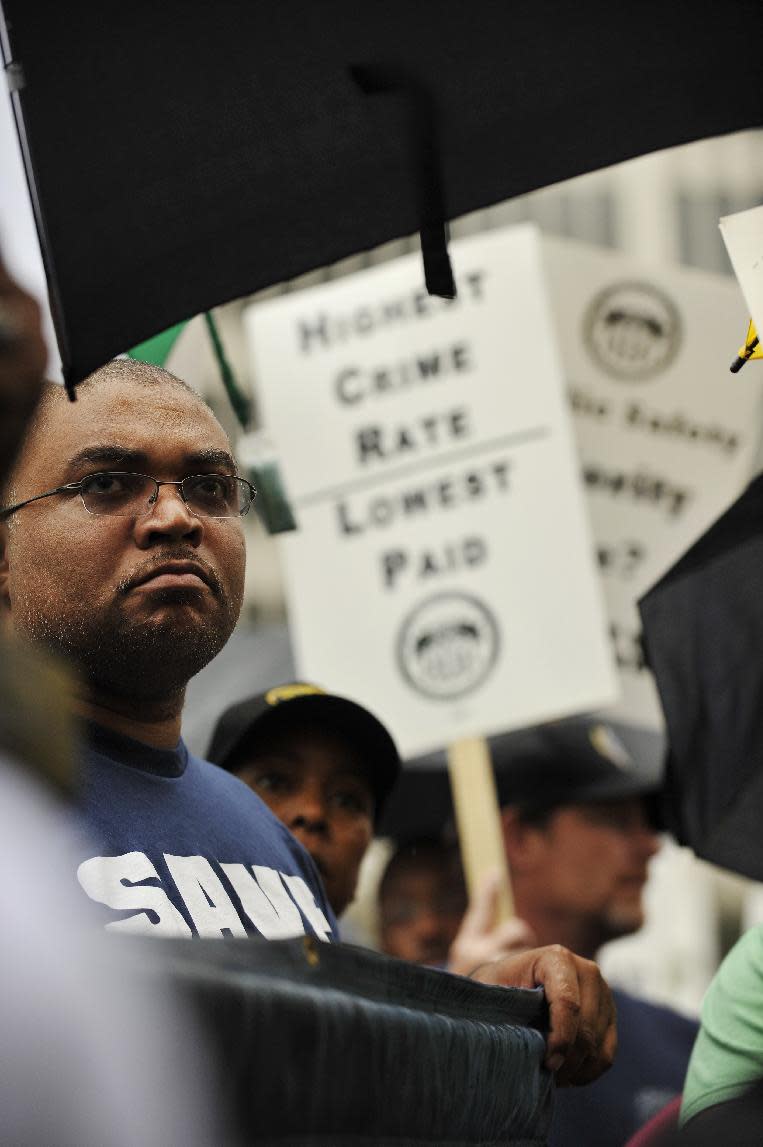Detroit city workers protest 10 percent pay cut
DETROIT (AP) — Dozens of Detroit police officers swapped their side arms for picket signs Thursday as they marched around City Hall to protest a new contract and pay cut imposed on them by Mayor Dave Bing.
Although the protestors' numbers swelled to several hundred as firefighters and others joined in, city workers' options are limited under a consent agreement that wrestled power away from organized labor and placed it in the mayor's hands.
Strikes by public employees are illegal in Michigan, but not unheard of. Some unofficial strikes in past years have included sick outs, where workers all call in sick on the same day as a form of protest.
Union leaders have kept mostly quiet on strategy, although Detroit Police Officers Association President Joseph Duncan said the fight is a legal one and will go through the courts.
"We're law-abiding people. We're not talking about a stoppage," Duncan told reporters as raindrops pelted protesters outside the Coleman A. Young Municipal Center. "I'm not talking about a strike."
Detroit residents endured strikes in 1971, 1975, 1978 and 1986 that either stopped city buses from running or left trash piled curbside.
"Even though they say we can't strike, we could have easily shut down and did a blue flu," officer LaShanna Potts, 34, said in regards to a sick out. "We know the citizens need us. We know it's not their fault.
"We want the citizens to know that we're not giving up on them, but we don't want them to give up on us. I think the city government has given up on us."
Any moves that are made should come with care, according to one labor law expert.
"Deciding to all get sick at the same time? I don't know if they could get away with that," said Frank Mamat, a partner in the Foster, Swift, Collins and Smith law firm and instructor at Wayne State University.
"(Police) may lose some sympathy if nobody is coming on a 911 run because there is no one there to answer the phone," Mamet said. "But the city may not have any good options if everybody decided to call in sick one morning. I don't see any winners."
A real or perceived public safety crisis could saddle Detroit with what the city has been trying to avoid most: an emergency manager.
Years of shoddy city administration and poor budgeting are haunting Detroit. The city's budget deficit is more than $200 million. Structural debt is in the billions of dollars.
Republican Gov. Rick Snyder threatened to appoint an emergency manager to fix the city's finances, but the consent agreement brokered in April between Bing and the state allows for some state oversight instead of nearly complete control.
"If I was the union, I don't know that I would try to push the governor into a corner," Mamat said "That may be all he's looking for to come in and appoint an emergency manager."
The city employs about 10,000 people, about 2,000 of whom are police officers. Bing imposed contracts earlier this month on police and a number of other city unions whose previous deals expired June 30. While the city negotiated temporary contract agreements with its unions earlier this year, those deals were not approved.
The city did not negotiate with the unions on the new contracts, which cut wages by 10 percent and require employees to pay 20 percent of their medical costs. Other previously bargained perks including bonus vacation days and annual increases to retirement plans have been eliminated. Hundreds of workers also will be laid off.
Bing has said the cuts and other changes, which are expected to take effect in a few weeks, will save the city more than $100 million.
Union leaders say the weight has been laid on workers' backs.
"Without investment in public safety, many will seek employment elsewhere," said Duncan, police union chief. "Those left behind are demoralized, disgruntled and disheartened by this administration's war on police and fire."
Any disinvestment in public safety will cause more people to flee Detroit, lowering the city's tax base even more, according to police union attorney Donato Iorio.
Iorio said starting pay for a Detroit officer is about $29,000. That figures maxes out with 25 years of service at about $48,000 with the 10 percent pay cut. In comparison, starting pay for New Orleans police officers is about $34,000, he said.
Detroit officer Katherine Price said she will look for a second job just to make ends meet.
"I don't have a choice. I have to do what I have to do for my kids," said the 41-year-old Price, who is assigned patrol duties in the city's 12th Precinct.
The Associated Press left a message Thursday seeking comment from Bing on the protest. Bing attended a community meeting Thursday evening but declined to take questions from several police officers, Iorio said, noting that Detroit police have not had a raise since 2008.



